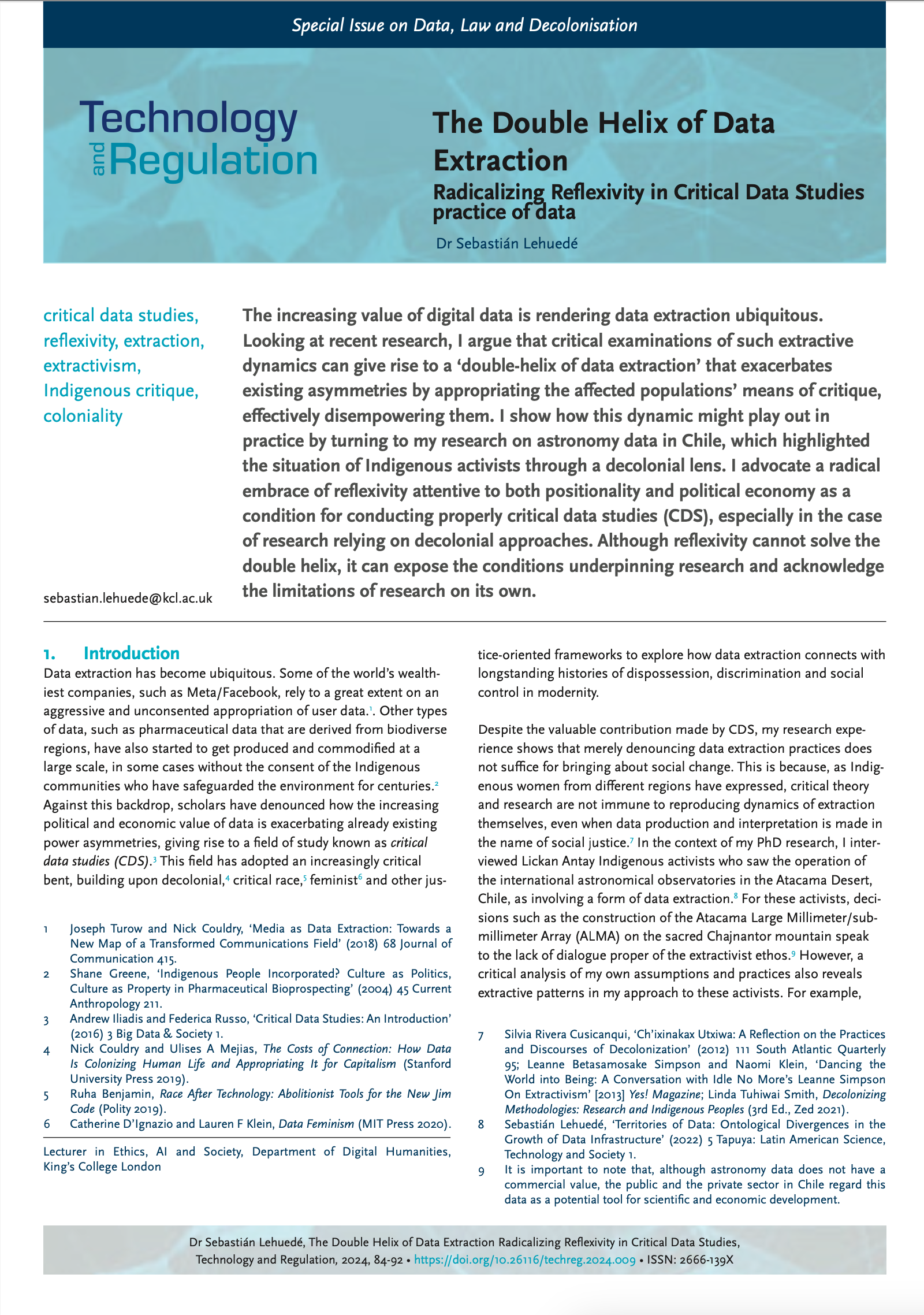The Double Helix of Data Extraction
Radicalising Reflexivity in Critical Data Studies
DOI:
https://doi.org/10.71265/awqfar53Abstract
The increasing value of data is rendering data extraction ubiquitous. Looking at recent research, I argue that work critical of extractive dynamics can give rise to a ‘double-helix of data extraction’ that exacerbates existing asymmetries by appropriating the means of critique of affected populations. I show how this dynamic might play out in practice by turning to my research on astronomy data in Chile, which adopted a decolonial lens and involved Indigenous activists. Finally, a radical embracement of reflexivity attentive to both positionality and political economy is advocated as a condition for conducting properly critical data studies (CDS), especially in the case of research relying on decolonial approaches. Although reflexivity cannot solve the double helix, it can expose the conditions underpinning research and acknowledge the limitations of research on its own.
Downloads

Downloads
Published
Versions
- 22-03-2024 (2)
- 18-03-2024 (1)
Issue
Section
License
Copyright (c) 2024 Sebastián Lehuedé

This work is licensed under a Creative Commons Attribution-NonCommercial-NoDerivatives 4.0 International License.






